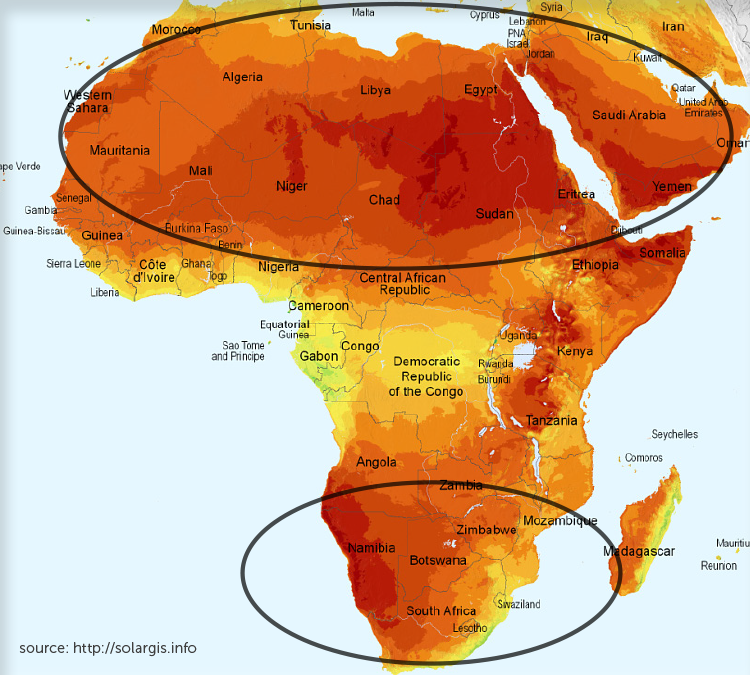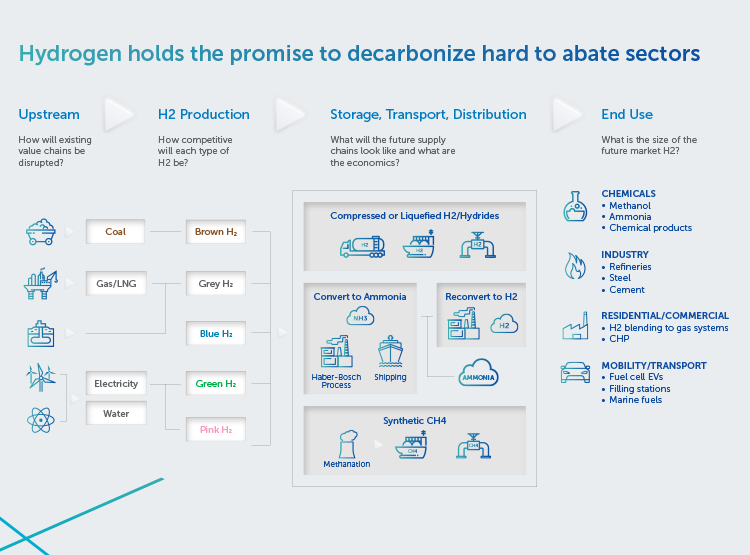Part 2 | Africa and the Global Hydrogen Economy
At a glance
- Clean hydrogen must be a crucial part of Africa's industrialization efforts and decarbonization goals to avoid being left behind in the global transition.
- Africa's low CO2 and GHG emissions present an opportunity for the continent to prosper through investments in the entire value chain of clean hydrogen, including production, storage, transportation, and end-use applications.
- Developing the hydrogen economy in Africa will support global decarbonization, help countries meet climate goals, and create sustainable economic growth. Africa has the potential to become a major player in the clean hydrogen value chain, with favorable conditions for green hydrogen production and export hubs in regions like Northern and Southern Africa. Governments need to establish supportive policy and regulatory frameworks to attract significant investments in hydrogen projects.
With Africa being the continent with by far the lowest CO2 and GHG emissions, accounting for between 2% to 3% of global GHG emissions (with South Africa accounting for about 33% of all GHG emissions in Sub-Saharan Africa), clean hydrogen presents a chance for Africa to be catapulted into prosperity through investment in the entire value chain of clean hydrogen.
This includes the production of green hydrogen from renewal sources; the production of PtX products from green hydrogen (ammonia, methanol etc); the production of hydrogen from repurposed existing fossil-fuel intense infrastructure; the development of storage and handling facilities for hydrogen; and the transportation infrastructure (pipelines, vessels) for conveying hydrogen products, including to end-use applications in existing and future industries (electric fuel cell vehicles, refuelling stations, and so on).
The development of the hydrogen economy in Africa will support effective, broad global decarbonisation, allow countries to meet their climate goals, and create sustainable economic growth for African countries and the rest of the world. There are enormous opportunities for Africa to be a key player in the clean hydrogen value chain, with several regions having the potential to develop into major global export hubs for hydrogen and other areas with the potential to provide domestic demand for end-use applications of hydrogen. Northern and Southern Africa have very favourable solar conditions for the production of green hydrogen, and countries in these regions (such as Namibia and South Africa in the south) are ideally situated to become export hubs for green hydrogen and PtX products.

However, for that to happen African governments must make a concerted effort to ensure they have suitable policy and regulatory frameworks in place that make investment of significant capital in projects along the hydrogen value chain enticing. Clean hydrogen is considered to be the only scalable and cost-efficient energy vector to decarbonise hard to abate sectors (heavy industries, transportation and mobility) that require clean molecules as fuel or feedstock to substitute petroleum products and coal.

The information and material published on this website is provided for general purposes only and does not constitute legal advice. We make every effort to ensure that the content is updated regularly and to offer the most current and accurate information. Please consult one of our lawyers on any specific legal problem or matter. We accept no responsibility for any loss or damage, whether direct or consequential, which may arise from reliance on the information contained in these pages. Please refer to our full terms and conditions. Copyright © 2026 Cliffe Dekker Hofmeyr. All rights reserved. For permission to reproduce an article or publication, please contact us cliffedekkerhofmeyr@cdhlegal.com.
Subscribe
We support our clients’ strategic and operational needs by offering innovative, integrated and high quality thought leadership. To stay up to date on the latest legal developments that may potentially impact your business, subscribe to our alerts, seminar and webinar invitations.
Subscribe



